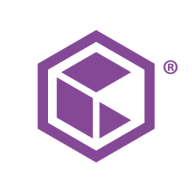

Commvault Cloud and Druva Phoenix are competitive solutions in the data protection and management space. Commvault Cloud excels with comprehensive data management, while Druva Phoenix is recognized for its cloud-native architecture, offering efficient scalability and cost-effectiveness.
Features: Commvault Cloud supports a wide variety of operating systems and applications, with policy-based configuration and central administration, enabling management from a single console. It offers automated updates, comprehensive cloud integration, and global deduplication, all contributing to operational savings. Druva Phoenix provides simple and efficient cloud data protection and disaster recovery. It is known for its scalability in cloud environments, straightforward user interaction, and robust security features, ensuring secure off-site backups and ease of management.
Room for Improvement: Commvault Cloud's complexity in deployment poses a learning curve; users may find initial setup and detailed planning challenging. The interface could benefit from simplification, especially for administrators handling smaller environments. The automatic updates, while beneficial, sometimes demand further manual intervention. Druva Phoenix could improve by expanding its platform support, particularly in VM environments other than Hyper-V and Nutanix. Its analytics and AI features could be enhanced to provide more effective insights. User guidance could be strengthened through better documentation and community resources.
Ease of Deployment and Customer Service: Commvault Cloud is versatile in deployment, adapting to various business models but can be complex, necessitating comprehensive planning. Its customer support is reliable and thorough, ensuring dependable assistance. Druva Phoenix stands out for its simple deployment process due to its cloud-native design, making it more straightforward and quicker to implement. Their customer service is known for responsiveness and agility, facilitating efficient service during the initial setup process.
Pricing and ROI: Commvault Cloud involves higher initial setup costs owing to its extensive features but can result in a significant ROI over time. Its comprehensive capabilities can outweigh the initial expenses for larger enterprises. Druva Phoenix offers a more predictable pricing model, which is advantageous for organizations with immediate cost concerns, providing cost savings through its efficient and scalable cloud-native implementation.
| Product | Market Share (%) |
|---|---|
| Commvault Cloud | 8.6% |
| Druva Phoenix | 1.5% |
| Other | 89.9% |


| Company Size | Count |
|---|---|
| Small Business | 57 |
| Midsize Enterprise | 24 |
| Large Enterprise | 81 |
| Company Size | Count |
|---|---|
| Small Business | 4 |
| Midsize Enterprise | 3 |
| Large Enterprise | 2 |
Commvault Cloud is the ultimate cyber resilience platform built to meet the demands of the hybrid
enterprise. Beyond its core functionality of data backup and recovery across diverse workloads, including applications, databases, virtual machines, and files, Commvault Cloud stands out as a robust defense against ransomware. Going beyond backup, the platform integrates advanced data security features such as encryption, access control, and threat detection, safeguarding against unauthorized access and cyber threats.
With tools for data management, classification, and migration, businesses can optimize storage costs, enhance accessibility, and comply with regulations seamlessly. Boasting cloud integration with major providers like AWS, Azure, and Google Cloud, Commvault Cloud leverages the scalability and flexibility of the cloud for comprehensive data protection and management. The platform's automation capabilities streamline tasks, and its reporting and analytics features provide valuable insights into data usage, potential risks, and optimization strategies. Commvault Cloud is not just a security tool; it is a key component of cyber resilience, enabling organizations to not only protect against cyberattacks but also recover swiftly and minimize the impact of incidents. Elevate your cyber resilience strategy with Commvault Cloud.
Druva Phoenix is a comprehensive cloud-based data protection and management solution that enables organizations to securely backup, recover, and manage their data across endpoints, physical servers, virtual machines, and cloud applications. With its scalable and flexible architecture, Druva Phoenix simplifies data protection and eliminates the need for traditional backup infrastructure.
By leveraging the power of the cloud, Druva Phoenix offers organizations a cost-effective and efficient way to protect their critical data. It provides automated backup and recovery capabilities, ensuring that data is always protected and easily recoverable in the event of a disaster or data loss. With its global deduplication and compression technology, Druva Phoenix minimizes storage requirements and reduces costs.
Druva Phoenix also offers advanced features such as point-in-time recovery, allowing organizations to restore data to a specific point in time, and granular file-level recovery, enabling users to recover individual files or folders. Its intuitive web-based console provides a centralized view of all protected data, making it easy to manage and monitor backups across the entire organization.
In addition to data protection, Druva Phoenix offers comprehensive data management capabilities. It enables organizations to gain insights into their data through advanced analytics and reporting, helping them make informed decisions and optimize their storage resources. Druva Phoenix also supports legal and compliance requirements by providing eDiscovery capabilities and ensuring data is retained and disposed of according to regulatory guidelines.
With its cloud-native architecture, Druva Phoenix offers organizations the flexibility to protect and manage their data across a wide range of environments, including on-premises, remote offices, and cloud applications such as Microsoft 365 and Google Workspace. It seamlessly integrates with popular cloud platforms like AWS and Azure, allowing organizations to leverage their existing cloud investments.
We monitor all SaaS Backup reviews to prevent fraudulent reviews and keep review quality high. We do not post reviews by company employees or direct competitors. We validate each review for authenticity via cross-reference with LinkedIn, and personal follow-up with the reviewer when necessary.